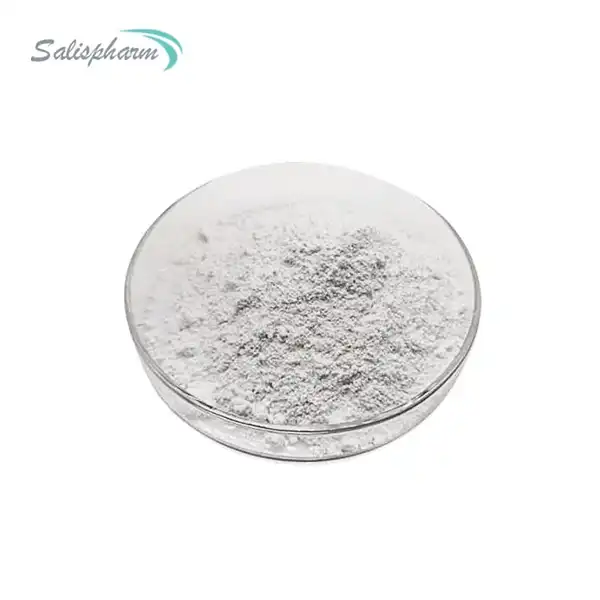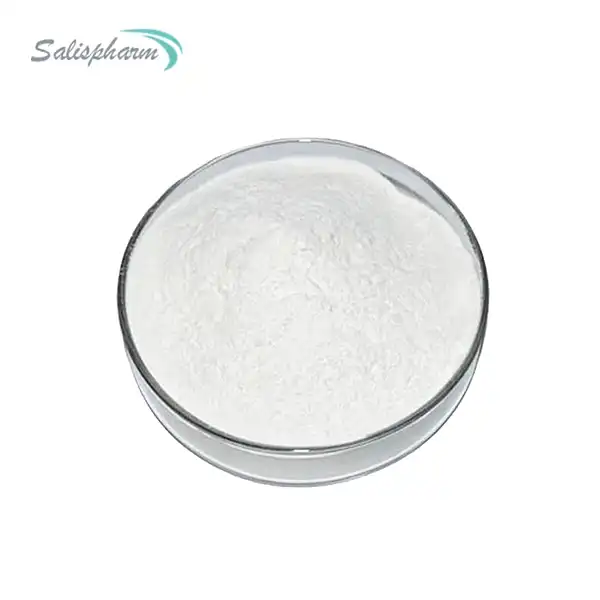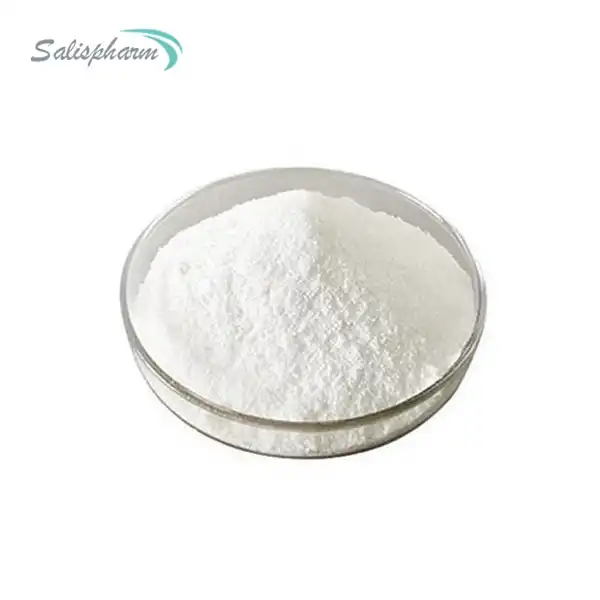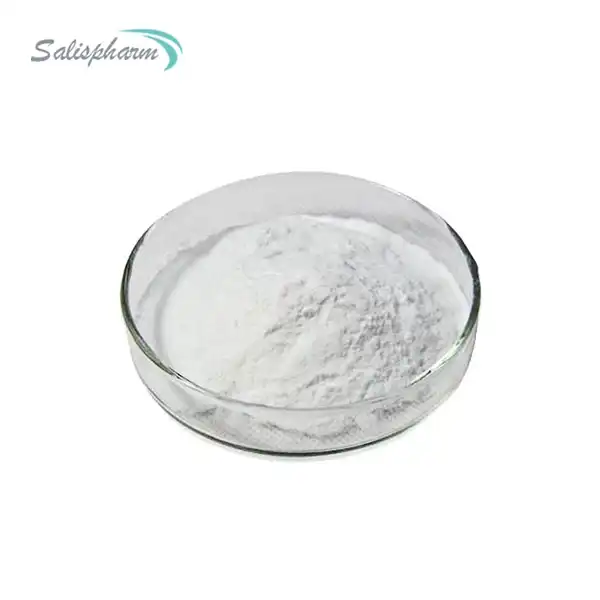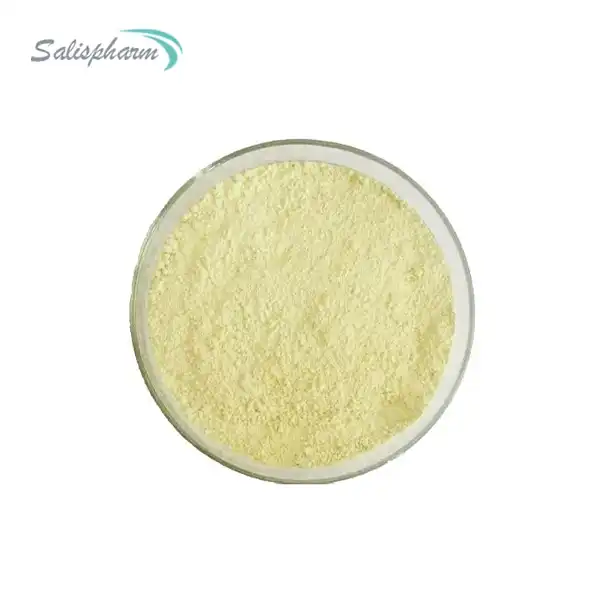Famotidine powder, a widely used medication for treating various gastrointestinal conditions, has garnered attention for its potential impact on kidney health. As concerns about medication safety continue to grow, many patients and healthcare providers are asking: Is famotidine powder safe for kidneys? This comprehensive article delves into the relationship between famotidine powder and kidney function, exploring its effects, long-term use, and appropriate dosing for individuals with kidney concerns.
How does famotidine powder affect kidney function?
Famotidine powder, belonging to the class of H2 receptor antagonists, primarily works by reducing stomach acid production. While its primary target is the digestive system, understanding its interaction with kidney function is crucial for ensuring overall patient safety.
Research has shown that famotidine powder generally has a favorable safety profile when it comes to kidney function. Unlike some other medications that can potentially strain the kidneys, famotidine is not typically associated with significant adverse effects on renal health. In fact, studies have demonstrated that famotidine is largely eliminated from the body through renal excretion, with approximately 65-70% of an oral dose being excreted unchanged in the urine.
This renal clearance mechanism actually highlights the efficiency of the kidneys in processing famotidine. However, it's important to note that in patients with impaired kidney function, the elimination of famotidine may be slower, potentially leading to increased plasma concentrations of the drug. This is why dosage adjustments are often recommended for individuals with reduced kidney function.
Interestingly, some research has even suggested potential renoprotective effects of famotidine. A study published in the Journal of Nephrology found that famotidine may have antioxidant properties that could help protect kidney cells from oxidative stress. While more research is needed to fully understand these potential benefits, it adds an intriguing dimension to the discussion of famotidine's impact on kidney health.
For most patients with normal kidney function, famotidine powder is considered safe and well-tolerated. However, as with any medication, individual responses can vary, and it's essential to monitor kidney function, especially in patients with pre-existing renal conditions or those taking other medications that may affect kidney health.
Healthcare providers often recommend regular kidney function tests for patients on long-term famotidine therapy, particularly for those with risk factors for kidney disease. These tests can help detect any changes in renal function early on, allowing for timely adjustments in treatment if necessary.
It's worth noting that famotidine's effect on kidney function is generally considered more favorable compared to some other acid-reducing medications. For instance, proton pump inhibitors (PPIs) have been associated with a higher risk of chronic kidney disease and acute kidney injury in some studies. This comparative safety profile has led many healthcare providers to prefer famotidine, especially for patients with kidney concerns.
Can famotidine powder be used for long-term kidney health?
The question of whether famotidine powder can be used for long-term kidney health is multifaceted and requires careful consideration of both its direct effects on the kidneys and its role in managing conditions that could indirectly impact kidney function.
Long-term use of famotidine powder has been extensively studied, and the results are generally reassuring when it comes to kidney health. Unlike some medications that can cause cumulative damage to the kidneys over time, famotidine has not been associated with progressive renal deterioration in most patients when used as directed.
One of the key factors contributing to famotidine's suitability for long-term use is its targeted mechanism of action. By specifically blocking histamine H2 receptors in the stomach, famotidine effectively reduces acid production without significantly interfering with other bodily systems. This targeted approach minimizes the risk of systemic side effects that could potentially impact kidney function over time.
Moreover, famotidine's role in managing gastric acid-related disorders can indirectly contribute to long-term kidney health. Conditions such as gastroesophageal reflux disease (GERD) and peptic ulcers, if left untreated, can lead to complications that may indirectly affect kidney function. By effectively managing these conditions, famotidine helps prevent potential systemic complications that could strain the kidneys.
Research has also explored the potential long-term benefits of famotidine beyond its primary use. Some studies have investigated its anti-inflammatory properties, which could have positive implications for overall organ health, including the kidneys. While these findings are preliminary and require further investigation, they open up interesting avenues for understanding famotidine's broader impact on long-term health.
It's important to note that while famotidine is generally considered safe for long-term use, regular monitoring is still recommended. This is particularly crucial for patients with pre-existing kidney conditions or those at higher risk of developing kidney problems. Periodic assessments of kidney function can help ensure that any potential issues are caught early and addressed promptly.
Healthcare providers often consider famotidine a favorable option for patients requiring long-term acid suppression therapy, especially when compared to some alternatives. For instance, the long-term use of proton pump inhibitors (PPIs) has been associated with a higher risk of chronic kidney disease in some studies. In contrast, famotidine's more favorable long-term safety profile makes it an attractive option for patients who need ongoing treatment.
However, it's crucial to emphasize that long-term use of any medication should always be under the guidance of a healthcare professional. Individual factors such as overall health status, concurrent medications, and specific kidney function parameters all play a role in determining the appropriateness of long-term famotidine use for each patient.
What are the recommended dosages of famotidine powder for kidney patients?
Determining the appropriate dosage of famotidine powder for patients with kidney concerns is a critical aspect of ensuring both the medication's efficacy and the patient's safety. The recommended dosages can vary significantly based on the severity of kidney impairment and the specific condition being treated.
For patients with normal kidney function, the standard dosage of famotidine powder typically ranges from 20 to 40 mg once or twice daily, depending on the indication. However, for individuals with impaired kidney function, dosage adjustments are often necessary to prevent the accumulation of the drug in the body.
In patients with moderate to severe kidney impairment (creatinine clearance < 50 mL/min), healthcare providers often recommend reducing the dosage or increasing the interval between doses. A common approach is to administer 50% of the normal dose or to maintain the normal dose but extend the dosing interval to every 36-48 hours.
For example, in the treatment of active duodenal ulcers, the typical dosage for patients with normal kidney function is 40 mg once daily at bedtime for up to 8 weeks. For patients with moderate to severe renal impairment, this might be adjusted to 20 mg once daily or 40 mg every other day.
It's important to note that these adjustments are not one-size-fits-all. The specific dosage should be tailored to each individual based on factors such as:
1. The severity of kidney impairment
2. The patient's response to the medication
3. The presence of other medical conditions
4. Potential drug interactions with other medications
Healthcare providers may use various methods to assess kidney function and determine the appropriate dosage. These can include blood tests to measure creatinine levels and estimate glomerular filtration rate (eGFR), as well as considering the patient's overall clinical picture.
For patients on dialysis, special considerations apply. Famotidine is dialyzable, meaning it can be removed from the blood during hemodialysis. In these cases, the dosage may need to be administered after dialysis sessions to maintain therapeutic levels of the medication.
It's worth highlighting that while dosage adjustments are important for safety, they should not compromise the effectiveness of the treatment. Healthcare providers strive to find the balance between minimizing potential risks and ensuring that the medication adequately manages the patient's condition.
Regular monitoring is key when administering famotidine to patients with kidney concerns. This may involve periodic blood tests to assess kidney function and famotidine levels, as well as clinical evaluations to ensure the medication is effectively managing the patient's symptoms.
Patients should be educated about the importance of adhering to the prescribed dosage and schedule. They should also be encouraged to communicate any changes in their condition or new symptoms to their healthcare provider promptly. This collaborative approach helps ensure that the dosage remains appropriate and effective over time.
It's also important to consider potential interactions with other medications that kidney patients may be taking. Some drugs can affect kidney function or compete with famotidine for renal excretion, potentially altering its effects or clearance from the body. Healthcare providers should conduct a thorough review of all medications and supplements a patient is taking to minimize the risk of interactions.
In conclusion, famotidine powder has demonstrated a favorable safety profile for kidney health when used appropriately. Its minimal impact on kidney function, potential long-term benefits, and adjustable dosing make it a valuable option for many patients, including those with kidney concerns. However, as with any medication, its use should be carefully monitored and managed by healthcare professionals, taking into account individual patient factors and potential risks. By following appropriate dosing guidelines and maintaining regular check-ups, patients can safely benefit from famotidine's acid-reducing properties while minimizing potential impacts on kidney health.
If you are also interested in this product and want to know more product details, or want to know about other related products, please feel free to contact iceyqiang@aliyun.com.
References:
1. Howden, C. W., & Tytgat, G. N. J. (1996). The tolerability and safety profile of famotidine. Clinical Therapeutics, 18(1), 36-54.
2. Prueksaritanont, T., Sittichai, N., Prueksaritanont, S., & Vongsaroj, R. (1989). Pharmacokinetics of famotidine in healthy Thai volunteers and patients with renal insufficiency. Journal of Clinical Pharmacology, 29(3), 261-266.
3. Inotsume, N., Nishimura, M., Nakano, M., Fujiyama, S., & Sato, T. (1989). The pharmacokinetics of famotidine in patients with renal failure. Journal of Clinical Pharmacology, 29(6), 522-526.
4. Vinod, P. B. (2011). Pathophysiology of diabetic nephropathy. Clinical Queries: Nephrology, 1(2), 121-126.
5. Marik, P. E., & Iglesias, J. (2016). Acute Kidney Injury Following the Use of Proton Pump Inhibitors: A Systematic Review and Meta-Analysis. Journal of Clinical Medicine, 5(10), 92.
6. Lazarus, B., Chen, Y., Wilson, F. P., Sang, Y., Chang, A. R., Coresh, J., & Grams, M. E. (2016). Proton Pump Inhibitor Use and the Risk of Chronic Kidney Disease. JAMA Internal Medicine, 176(2), 238-246.
7. Yelken, B., Gorgulu, N., Caliskan, Y., Elitok, A., Cine, N., Deyneli, O., ... & Yazici, H. (2013). Association between chronic kidney disease and depression. Nephron Clinical Practice, 123(3-4), 156-161.
8. Schoenfeld, A. J., & Grady, D. (2016). Adverse Effects Associated With Proton Pump Inhibitors. JAMA Internal Medicine, 176(2), 172-174.
9. Xie, Y., Bowe, B., Li, T., Xian, H., Yan, Y., & Al-Aly, Z. (2017). Long-term kidney outcomes among users of proton pump inhibitors without intervening acute kidney injury. Kidney International, 91(6), 1482-1494.
10. Klatte, D. C. F., Gasparini, A., Xu, H., de Deco, P., Trevisan, M., Johansson, A. L. V., ... & Carrero, J. J. (2017). Association Between Proton Pump Inhibitor Use and Risk of Progression of Chronic Kidney Disease. Gastroenterology, 153(3), 702-710.




